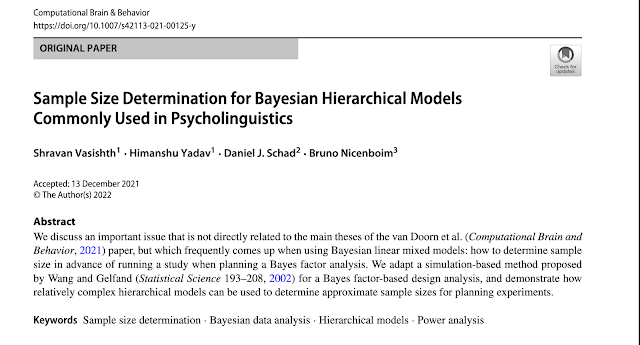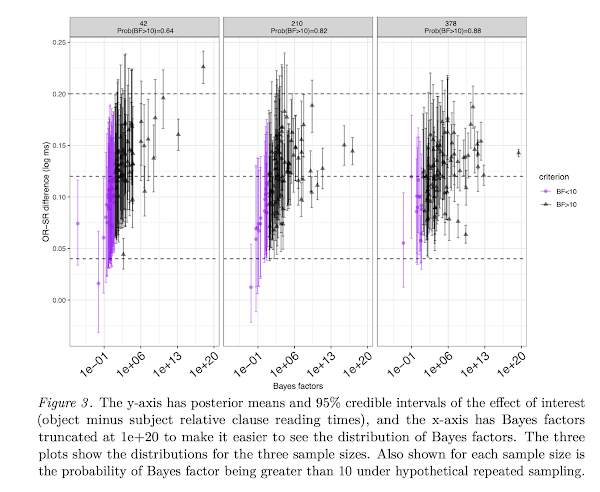I was asked to advertise this summer school (I will be teaching a 2.5 day course on linear mixed modeling, and will give a keynote lecture on the use of Bayesian methods in linguistics/psychology). The text below is from the organizers.
Summer School “Methods in Language Sciences” 2022:
Registrations are open
Top quality research requires outstanding methodological skills. That is why the Department
of Linguistics and the Department of Translation, Interpreting and Communication of Ghent
University will jointly organize the (second edition of the) Summer School “Methods in
Language Sciences” on 16-20 August 2022.
This Summer School is targeted at both junior and senior researchers and offers nine multi-
day modules on various topics, ranging from quantitative to qualitative methods and
covering introductory and advanced statistical analysis, Natural Language Processing
(NLP), eye-tracking, survey design, ethnographic methods, as well as specific tools such
as PRAAT and ELAN. In 2022 we have a new module on Linear Mixed Models. All lecturers
are internationally recognized experts with a strong research and teaching background.
Because the modules will partly be held in parallel sessions, participants have to choose one
or two modules to follow (see the Programme for details). No prerequisite knowledge or
experience is required, except for Modules 2 and 9, which deal with advanced statistical data
analysis.
We are proud to welcome two keynote speakers at this year’s summer school: Shravan
Vasishth and Crispin Thurlow, who both also act as lecturers.
This is your opportunity to take your methodological skills for research in (applied)
linguistics, translation or interpreting studies to the next level. We are looking forward to
meeting you in Ghent!



